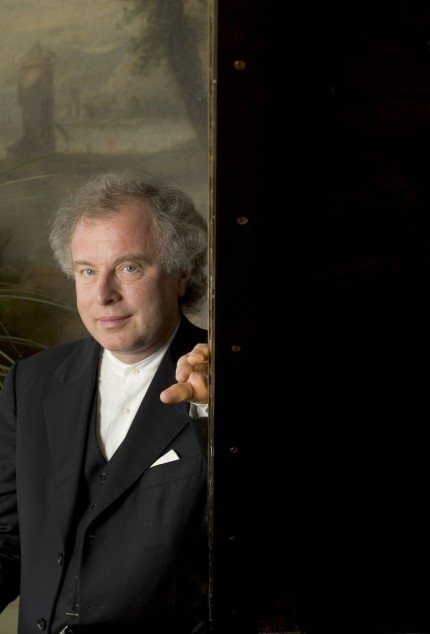Schiff illuminates four Viennese masters’ late keyboard works
After exploring the music of Bach in recent seasons, Sir Andras Schiff has now embarked on a “Last Sonatas” series which will explore the final three works in the genre by Haydn, Mozart, Beethoven and Schubert.
Newly knighted since his last visit, Schiff returned to Symphony Center Sunday afternoon for a program in his new series. That all four composers represent the cornerstone Austro-German repertory–along with Bach—that the pianist has concentrated upon over his long career makes it seem like an even more worthy and apt project.
Certainly, Haydn keyboard playing doesn’t get much better than that which Schiff served up with the opening Sonata in C major, Hob XVI: 50. The Allegro displayed piquant interplay of dynamic contrasts with Haydn’s cheerful bustle wonderfully vital in Schiff’s rippling right-hand. In the somber Adagio, Schiff explored the Romantic pre-echoes of the minor-key excursions while keeping the overall approach within Rococo parameters. The finale was pure delight, Schiff bringing out the music’s wit and impish humor, as in the throwaway coda.
The pianist remained on stage, clearly wanting to launch immediately into Beethoven’s Sonata No. 30 in E major. It was not to be, with several late arrivals being seated, including an elderly couple who slowly made their way down to the balcony’s second row after Schiff had already begun playing, obbligato steel percussion supplied by the woman’s cane.
Perhaps the distraction affected the performance. While his playing was committed and idiomatic–one jarring slip apart–Schiff’s Beethoven didn’t quite plumb the depths of this late work. The opening Vivace was well captured, beginning as if in mid-thought, and the Prestissimo movement made fine contrast, bristling with nervous energy. Schiff firmly characterized the variations of the finale, yet his touch seemed rather heavy in the otherworldly main theme–one of Beethoven’s most radiant inspirations—missing the sense of glowing benediction at the coda.
Despite the shadows and financial pressures of his final years, Mozart’s Sonata in C major, K.545, offers some of his most lighthearted music. Schiff made the familiar opening theme—greeted with pleased murmurs Sunday—uncommonly fresh and spirited, contributing some fitfully busy grace notes, and giving the minor-key episodes their due without sacrificing an essential geniality.
There are darker moments in the central Andante, yet the pianist took the rondo theme at more of a fleet Allegretto, perhaps slighting some of the harmonic depths in the process, though the finale went with superb ebullient vitality.
Schubert’s late sonatas have long been a Schiff specialty. As in his recordings and previous performances, the Sonata in C minor, D958, was given a dramatic and thoughtful reading. Other artists may bring more explosive intensity to the sudden outbursts, yet Schiff’s refined, aristocratic approach lacked nothing in passion and architectural command of the work’s dramatic arc.
The stern, implacable opening bars made manifest the Beethoven influence, and the long first movement was rendered with great skill and clarity, the journey charted as if with a musical GPS. Stately and graceful, the Andante was equally idiomatic with minor-key excursions given their due if not quite penetrating to the heart of darkness at its core. A restless Menuetto and commanding finale rounded off a fine Schubert performance.
Vociferous ovations from the packed house brought Schiff back for four encores. First was a searching account of Schubert’s Hungarian Melody in B minor, the Hungarian pianist assaying the melody’s contour with a wonderfully free and flexible rubato.
Schubert’s Impromptu in E flat was elegant and rippling with tensile strength, while Beethoven’s speedy Bagatelle in B minor went with the manic energy of a silent-movie chase. Schiff closed the afternoon with more Schubert, a flowing and eloquent rendering of the Impromptu in G flat.
Posted in Performances



